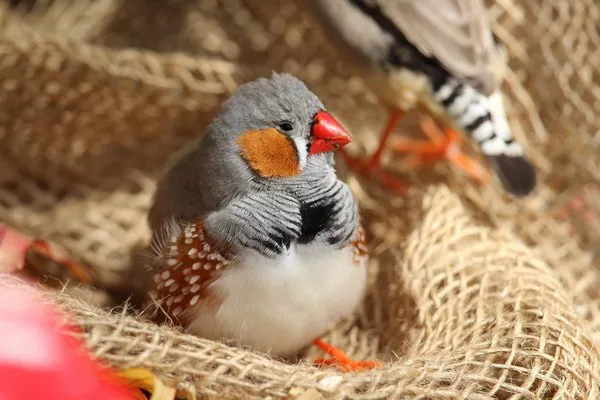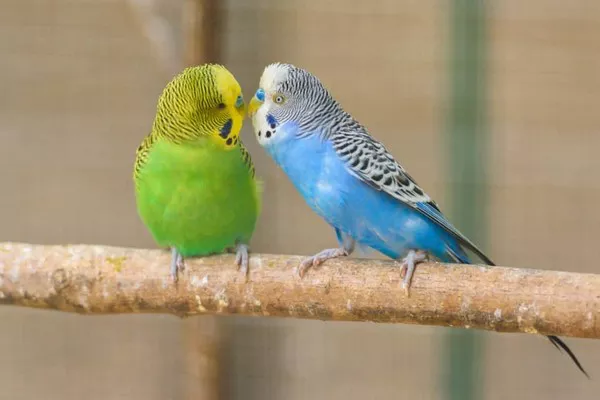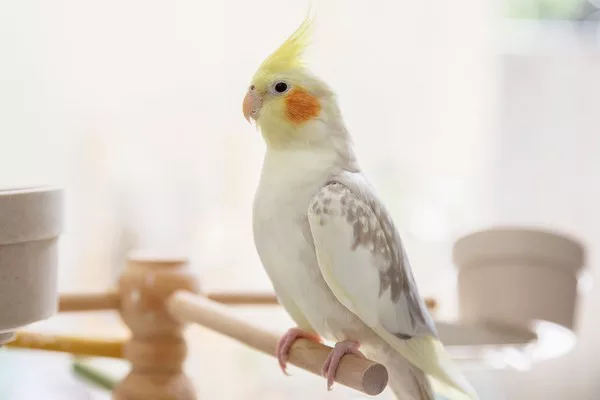African grey parrots are renowned for their intelligence, charisma, and striking plumage, but they also come with a unique challenge: they can be exceptionally noisy. If you’re a proud owner of one of these remarkable birds, you’re likely well aware of the vocal abilities they possess. In this article, we’ll explore why African grey parrots are noisy, the different types of vocalizations they make, and most importantly, what you can do to manage and even enjoy their noise.
Understanding Why African Grey Parrots Are Noisy
African grey parrots (Psittacus erithacus) are native to the dense rainforests of Central and West Africa, where loud vocalizations are a key aspect of their daily lives. In the wild, they use their vocalizations for a variety of purposes, including communication with other parrots, warning of predators, and maintaining social bonds. This natural inclination towards vocalization carries over to captive African greys.
They are wired to be vocal, and this is something that every owner should be prepared for.
Types of Vocalizations: What Are African Grey Parrots Saying?
African grey parrots are noisy in diverse ways. They employ various vocalizations to express themselves, and it’s essential to decipher what your parrot is saying. Here are some common types of vocalizations and what they might signify:
1. Mimicking Sounds: African grey parrots are exceptional mimics. They can replicate human speech, other birds’ calls, and even random noises like doorbells or telephones. This mimicry is a form of entertainment and communication for them.
2. Whistling and Singing: These birds often whistle and sing tunes or melodies they’ve picked up. It’s their way of expressing contentment or happiness.
3. Loud Calls and Shrieks: African greys may emit loud calls or shrieks, particularly when they are excited, agitated, or seeking attention. These can be startling and disruptive.
4. Contact Calls: Parrots use contact calls to maintain communication with their owners or other parrots. These are softer, repetitive sounds that signify they want to stay in touch.
5. Screaming: In some cases, they may resort to full-blown screams, which are usually an indication of distress, frustration, or a need for something urgent.
Managing Your African Grey’s Noise Levels
While it’s natural for African grey parrots to be noisy, there are several strategies you can employ to manage their noise and enjoy a harmonious coexistence. Here are some effective techniques:
1. Training and Positive Reinforcement: Training your African grey parrot can go a long way in controlling their noise. Use positive reinforcement techniques to reward quiet behavior and discourage excessive vocalization.
2. Create a Routine: Establishing a consistent daily routine can help reduce anxiety and, consequently, noise levels. Ensure your parrot has ample playtime, mental stimulation, and social interaction.
3. Provide Toys and Enrichment: Offer a variety of toys and enrichment activities to keep your parrot engaged. Puzzle toys, foraging toys, and chewable items can help distract them from excessive vocalization.
4. Social Interaction: Spend quality time with your African grey. They are highly social birds that thrive on companionship. Loneliness can lead to increased vocalization, so consider getting a second bird for company if possible.
5. Environmental Changes: Assess the environment your parrot is in. Ensure it’s not situated in a high-traffic, noisy area of your home. A quieter space can help reduce external stimuli that trigger vocalizations.
6. Health Check: Noisy behavior can sometimes be a sign of discomfort or illness. Regular veterinary check-ups are crucial to rule out any health issues that may be contributing to excessive noise.
7. Respect Their Natural Behavior: Remember that African grey parrots are naturally vocal creatures. Some level of noise is to be expected, and it’s a part of their unique charm. Don’t punish them for being themselves.
8. Use White Noise or Music: Playing soft, calming music or using white noise machines can help drown out the parrot’s noise and provide a more peaceful living environment.
Seeking Professional Help
If despite your best efforts, the noise levels from your African grey parrot remain unmanageable and are causing distress, it may be time to seek professional advice. Avian veterinarians and parrot behaviorists can provide specialized guidance on dealing with excessive vocalization and may suggest tailored solutions for your specific situation.
Embracing the Beauty of African Grey Parrots
In conclusion, African grey parrots are noisy by nature, and this is an inherent part of their charm. Instead of seeing their vocalizations as a nuisance, consider it an opportunity to engage with your parrot on a deeper level. Their unique abilities to mimic sounds and communicate in their own way make them truly exceptional pets.
By understanding why African greys are noisy, recognizing their different vocalizations, and implementing effective management strategies, you can create a harmonious environment where you and your feathered friend can coexist happily. While it may require some effort and patience, the rewards of a loving bond with your African grey parrot are well worth it. So, embrace the beauty of these remarkable birds and the noisy joy they bring to your life.
Here are some FAQs about African Grey Parrots:
1. Can African Grey Parrots talk?
Yes, African Grey Parrots are renowned for their talking abilities. They are among the best mimics in the parrot world and can learn a wide vocabulary, often displaying an impressive capacity to understand and use words and phrases in context.
2. What should I feed my African Grey Parrot?
African Grey Parrots require a balanced diet that includes high-quality parrot pellets, fresh fruits, and vegetables. They should also have access to clean water. A well-rounded diet is essential for their health and longevity.
3. Do African Grey Parrots need a lot of social interaction?
Yes, African Grey Parrots are highly social birds and need a considerable amount of interaction with their owners. Loneliness can lead to behavioral problems and increased vocalization. Providing companionship and mental stimulation is crucial.
4. Do African Grey Parrots need a large cage?
Yes, African Grey Parrots need a spacious cage to accommodate their large wingspan and provide room for toys and exercise. The minimum recommended cage size for an African Grey is typically around 24 inches by 36 inches, but larger is always better.
5. Are there different species of African Grey Parrots?
Yes, there are two primary species of African Grey Parrots: the Congo African Grey (Psittacus erithacus erithacus) and the Timneh African Grey (Psittacus erithacus timneh). They have some differences in size, coloration, and habitat.
6. Are African Grey Parrots endangered?
Yes, African Grey Parrots are considered vulnerable and face significant threats in the wild, including habitat loss and the illegal pet trade. Conservation efforts are in place to protect and preserve their populations.
7. Can I keep more than one African Grey Parrot together?
African Grey Parrots are generally social birds, and they can be kept together, provided they are introduced and managed properly. However, they may form strong bonds with their human caregivers, which can sometimes lead to territorial or jealous behavior.
8. What are some common health concerns for African Grey Parrots?
African Grey Parrots are prone to health issues like psittacosis (a bacterial infection), aspergillosis (a fungal infection), feather plucking, and fatty liver disease. Regular veterinary check-ups are essential for their well-being.
These FAQs provide a general overview of African Grey Parrots and their care. If you plan to adopt one of these intelligent and charismatic birds, it’s essential to do further research and consult with avian experts to ensure their well-being and happiness.
Related Topics:
Can african greys lay eggs without mating?
How big of a cage do african greys need?
Reveal! How Do African Greys Talk

























